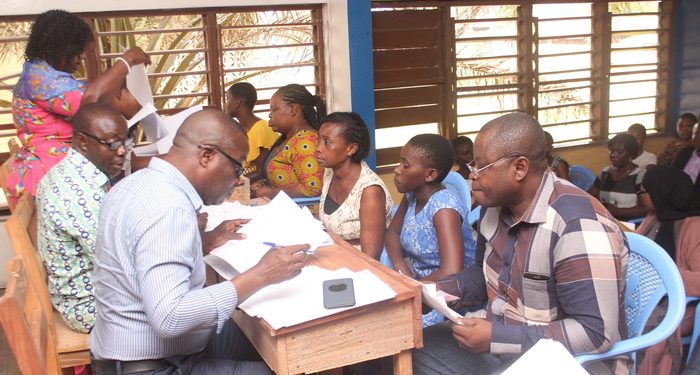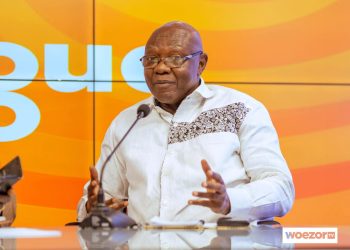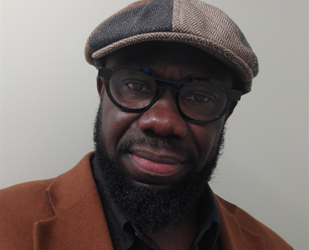The release of the 2025 Basic Education Certificate Examination (BECE) results and subsequent school placement has ignited a wave of dissatisfaction among Ghanaian parents, particularly those whose wards attended private basic schools.
While the Computerised School Selection and Placement System (CSSPS) was designed to ensure fairness and transparency, recent developments suggest a troubling trend: pupils from public basic schools with lower aggregates are being placed in top-tier senior high schools, while their private school counterparts with better results are being denied similar opportunities.
This article seeks to educate policymakers on the unintended consequences of this placement pattern, drawing attention to its potential to undermine educational equity, erode public trust, and compromise Ghana’s long-term human capital development.
The Placement Paradox: Merit vs. Equity
The Ghana Education Service (GES) has reiterated that BECE placements are strictly merit-based, denying allegations of favouritism or backdoor placements. However, the lived experiences of many parents tell a different story.
Reports from across the country reveal that students from private schools with aggregates as low as 6 or 7 are being placed in less-preferred schools or offered day placements, while public school students with aggregates of 10 or higher are admitted into elite institutions like St Augustine’s College, Prempeh College, and Achimota School.
This discrepancy raises critical questions like; Is the placement system truly meritocratic? Are there hidden quotas or affirmative action policies favouring public school students? What message does this send to parents who invest heavily in private school education?
The Role of Private Basic Schools in Ghana’s Education Ecosystem
Private basic schools have long filled a vital gap in Ghana’s educational landscape. In many urban and peri-urban areas, they offer quality instruction, smaller class sizes, and better infrastructure, often outperforming public schools in national assessments. Parents who choose private education do so at great financial sacrifice, driven by the hope of securing a brighter future for their children.
To penalise these students at the point of placement is not only unjust but counterproductive. It risks discouraging private investment in education, which has historically complemented government efforts and helped reduce the burden on public infrastructure.
If the government’s intention is to promote equity by giving public school students a leg up, it must do so without compromising meritocracy. Affirmative action, when poorly implemented, can breed resentment and erode public confidence. The current placement model appears to punish excellence and reward mediocrity; an approach that could have far-reaching consequences such as.

- Demotivation of high-performing students: When effort and achievement are not rewarded, students lose the incentive to excel.
- Erosion of parental trust: Parents may feel betrayed by a system that disregards their sacrifices.
- Decline in private school enrollment: If placements are skewed against private school students, parents may opt out, weakening a vital pillar of Ghana’s education system.
The Day vs. Boarding Dilemma
Another source of frustration is the inability of parents to switch their wards from day placements to boarding status. For families in rural or remote areas, boarding school is not a luxury, it’s a necessity. The rigidity of the CSSPS system, which often locks students into day placements far from home, creates logistical and emotional strain.
GES must recognize that placement is not just about academic fit, it’s about accessibility, safety, and well-being. A more flexible system that allows for post-placement adjustments would go a long way in addressing these concerns.
Unintended Consequences: A threat to human capital development
Ghana’s future depends on the quality of its human capital. If the brightest minds are denied access to the best educational opportunities due to systemic biases, the nation risks stunting its intellectual and economic growth. Consider the following ripple effects:
- Brain Drain: Frustrated families may seek education abroad, leading to talent loss.
- Social inequality: Placement disparities can deepen class divides, fueling social unrest.
- Reduced competitiveness: A misaligned education system produces graduates who are ill-prepared for global challenges.
Policy Recommendations: A Path Toward Fairness and Excellence
To address these issues, the government must consider the following reforms:
- Transparent Placement Criteria
Publish clear, verifiable guidelines on how placements are determined. If affirmative action is part of the policy, it should be openly acknowledged and justified.
- 2. Aggregate-based placement priority
Ensure that students with better aggregates, regardless of school type are prioritized for top-tier schools. Merit must remain the cornerstone of placement.
- Flexible post-placement adjustment window
Allow parents to appeal or request changes, especially for boarding status or proximity concerns. A 2-week adjustment window could be instituted.
- 4. Stakeholder Engagement
Engage private school associations, parent-teacher groups, and civil society in reviewing and refining the CSSPS model.
- Data-Driven Monitoring
Establish an independent body to audit placement outcomes annually, ensuring fairness and identifying systemic biases.
Voices from the ground
Kwame Mensah, a parent in Kumasi, shared his frustration: “My daughter scored aggregate 7 from a reputable private school, yet she was placed in a day school far from our home. Meanwhile, her friend from a public school with aggregate 11 got into a top boarding school. How do I explain this to her?”
Such stories are not isolated. They reflect a growing discontent that, if left unaddressed, could destabilize the educational harmony Ghana has worked hard to build.
Global Lessons: What Ghana can learn
Countries like Rwanda and Singapore have successfully balanced equity and excellence by using weighted scoring systems that reward both performance and socio-economic background. Another lesson we can learn from as a country is to offer scholarships and mentorships rather than manipulating placements and lastly to ensure parental choice remaining central to school selection.
Ghana can adapt these models to suit its unique context, ensuring that no child is left behind and no achiever is held back.
Conclusion: A call to action
The BECE placement controversy is more than a technical glitch; it’s a reflection of deeper systemic tensions. As Ghana strives toward educational transformation, it must ensure that fairness does not come at the expense of excellence. Every child, regardless of background, deserves a placement that reflects their effort, potential, and aspirations.
The government must act swiftly to restore trust, refine the placement system, and safeguard the future of Ghana’s human capital. Thank God the current Minister of Education has hinted a comprehensive review of the computerized selection system. The stakes are too high for complacency.
Placement Buying: A Hidden Threat to Educational Justice
- At its core, education should reward effort, talent, and achievement; placement buying undermines the principle of students who worked hard and earned top aggregates may be displaced by those whose families can afford to pay which will send a dangerous message that success is not earned but bought.
- Deepening Inequality: This practice widens the gap between rich and poor. Wealthy families gain unfair access to elite schools, while poorer but deserving students are sidelined. This reinforces class privilege and denies upward mobility to those who rely on education to escape poverty.
- Corruption and Loss of Public Trust
When school placement becomes transactional, the credibility of the Ghana Education Service (GES) and the Ministry of Education suffer. Parents lose faith in the system, leading to protests, legal challenges, and social unrest.
This may normalize corruption in the minds of young people who may grow up believing that influence trumps integrity.
- Demoralization of Teachers and Students
Educators in top schools may face pressure to accommodate students who are unprepared or placed unfairly. This disrupts classroom dynamics and lowers academic standards. Students who earned their place may feel cheated, leading to resentment and disengagement.
- 5. Long-Term Damage to Human Capital
If elite schools become havens for the well-connected rather than the talented, then Ghana risks producing graduates who lack the competence to lead in science, business, and governance. The country’s global competitiveness suffers, and innovation stalls.
What Government Must Do
To protect the future of Ghana’s education system, the government must:
- Investigate and prosecute placement fraud swiftly and transparently.
- Digitize and audit the CSSPS process with third-party oversight.
- Create whistleblower channels for parents and educators to report abuse.
- Publicize placement data to allow scrutiny and accountability.
This issue isn’t just about school slots; it’s about the soul of Ghana’s education system. If we allow corruption to take root at the gateway to learning, we compromise every step that follows.
By Seth KRAMPAH
About the Author
He covers banking, trade, and development across Ghana and Africa, with a passion for basic education, equity, and social advocacy.













